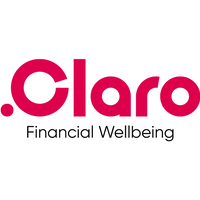How to build a solid financial wellbeing strategy
Financial wellbeing has been a priority for many organisations this year - and for good reason.
A good financial wellbeing strategy offers many benefits - reduced financial stress, improved productivity and staff retention, better working culture and an attractive benefit for new recruits.
While every household has been burdened by the cost-of-living crisis, each will experience their own personal financial stress and challenges.
It follows that a financial wellbeing programme should be inclusive for all staff.
Open your ears
To build a solid strategy, you need to start with the foundations. In this case, listening to employees.
This could include running focus groups or anonymous surveys to understand more about their financial situation – their goals, stresses, what they want from a financial wellbeing programme and how your current benefits package meets their needs.
If you already have this information, now is the time to review it to identify any gaps where some demographics are not being supported.
For example, are your financial wellbeing benefits suitable for your lowest-paid workers or are they slipping through the cracks? And are you presenting the information in a way that is accessible or engaging to all?
Claro Wellbeing research found the most popular financial wellbeing benefit for older workers, aged between 58 and 65, was one-to-one financial coaching, while younger generations preferred webinars.
Break the taboo of money talk
Use the information gathered to create an open and safe space for conversations about money that is appropriate for different staff members.
For example, you may want to hold small group sessions on building good money habits, covering questions submitted anonymously, to start the dialogue.
You could also offer one-on-one sessions with external experts, such as financial coaches, that are 100% confidential and can be carried out during the working day.
Can you lead by example in promoting transparency within the business by sharing how the business has been financially affected by the cost of living crisis or publishing your ethnicity pay gap?
Invite different perspectives
If possible, appoint external parties to work with your board and teams to broaden your viewpoint on financial inclusion.
This could include partnerships with consumer groups, financial education and debt charities, but also people working on financial wellbeing in different industries. The broader, the better.
Closer to home, also consider cross-team discussions involving employees in different roles, on different salaries and perhaps in different parts of the country in the conversation about their own money challenges and goals.
Keep the dialogue open
Ensure you keep engaging staff in an empathetic way with a consistent and effective communications plan.
This includes the cynics. While it’s never fun to be on the receiving end of criticism, engaging the haters could provide you with valuable feedback to help you further shape your financial wellbeing programme.
Use the language of your employees, use key personal finance dates to prompt discussion about money (see Claro Wellbeing’s calendar), and keep staff informed of how your financial wellbeing benefits are evolving.
Share stories and successes and encourage a two-way conversation with feedback forms, a dedicated email address or anonymous Slack or Microsoft Teams channel.
Tailor the solution
Pick the best financial wellbeing products and services for your staff based on their input, or choose a provider that offers a wide range of solutions.
For example, Claro Wellbeing has several options including human services such as one-to-one financial coaching for every employee and expert-led workshops; educational resources, such as our on-demand personal finance courses; and tech services, which includes calculators and a sophisticated budgeting tool that links to your bank account.
We can also create bespoke packages and design trial solutions for businesses to test out on their teams.
Supplied by REBA Associate Member, Claro Wellbeing
A financial wellbeing benefit to support your team where it matters most








